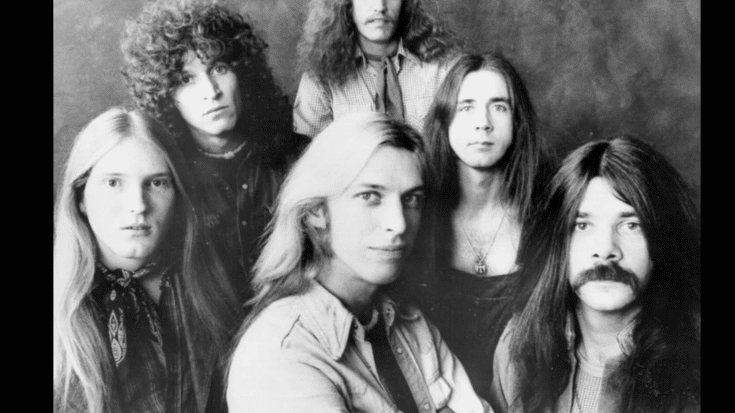10 Terrible Albums by Brilliant Musicians

via Good Music / YouTube
Sometimes, even the best musicians can miss the mark. Here are ten albums from critically acclaimed artists that didn’t quite live up to expectations. Each album showcases how various internal and external pressures can lead great talent astray.
KISS – Peter Criss (1978)
As part of a unique marketing strategy, all KISS members released solo albums simultaneously; however, Peter Criss’ album was notably the least successful. It featured outdated ballads and subpar production values that did not align with the powerful rock sound expected of a KISS member. His departure from the band shortly after highlighted the struggles and mismatches that sometimes occur in ambitious projects. This album serves as a lesson in how individual projects from band members might not always align with the group’s overall image and sound.
UFO – UFO 1 (1970)
UFO wasn’t always the powerhouse band that fans came to adore. Their debut, ‘UFO 1,’ struggled with poor sound quality and lacked the strong guitar elements that later defined their music. The album felt scattered, with songs that didn’t capture the energy or innovation typical of their later works. It serves as a stark reminder of the band’s humble and somewhat disoriented beginnings before finding their stride in the music industry.
The Doors – Full Circle (1972)
Following the death of iconic frontman Jim Morrison, The Doors tried to push forward with ‘Full Circle.’ Unfortunately, the album lacked cohesion and the magnetic pull Morrison provided. Overuse of session musicians diluted the band’s characteristic sound, leading to a project that felt like a shadow of their former albums. The album ended up as a disjointed effort that failed to resonate with the expectations set by their previous works.
Emerson, Lake & Palmer – Love Beach (1978)
‘Love Beach’ attempted to align the band with mainstream pop appeal, but it starkly contrasted their established progressive rock identity. The album was received poorly by both critics and fans and was later disowned by the band members themselves. It serves as an example of how a mismatch between a band’s core identity and a forced pop sensibility can result in an inauthentic and poorly received album.
Coven – Coven (1971)
‘Coven’ was the band’s attempt to shift from their dark, occult-themed debut to a more radio-friendly sound, which didn’t sit well with fans or critics. The album featured a lackluster rendition of Elvis Presley’s “Jailhouse Rock,” which felt ironic for a band previously steeped in witchcraft and dark themes. This transition resulted in an album that lost the unique charm and edginess of their debut, proving that drastic changes in a band’s sound can sometimes backfire.
Humble Pie – Street Rats (1975)
‘Street Rats’ was released under pressure from the record label and amidst significant personal turmoil, including heavy drug use among band members. The result was an album that contained a disjointed mix of tracks that felt unfinished and lacked the fierce energy typical of Humble Pie. The release went ahead without full approval from the band, showcasing how external pressures and poor decision-making can lead to a subpar product in the music industry.
Alice Cooper – Goes To Hell (1976)
Alice Cooper’s attempt to follow up the success of ‘Welcome to My Nightmare’ with ‘Goes To Hell’ fell flat. The album diverged markedly from his earlier, darker rock style to more theatrical and lighter tunes, which disconnected with his fan base. This shift highlights the risks artists take when changing a formula that fans have come to love, especially when the new direction does not resonate as strongly.
The Kinks – The Kinks Present A Soap Opera (1975)
This album’s concept centered around a mundane, everyday man’s life, which proved too banal to ignite interest. Criticized for its lackluster narrative and absence of engaging melodies, ‘A Soap Opera’ diverged from the sharp societal critiques and catchy tunes that were trademarks of The Kinks’ earlier successes. Band member Dave Davies himself voiced dissatisfaction with the project, highlighting internal disagreements that can contribute to a disappointing outcome.
Black Oak Arkansas – I’d Rather Be Sailing (1978)
Returning with ‘I’d Rather Be Sailing,’ Black Oak Arkansas delivered an uninspired set that lacked the energy and southern charisma they were known for. The album seemed more like a contractual obligation rather than a passionate project, which was evident in its performance and reception. It marked a significant downturn in the band’s career, showing how a loss of passion and engagement in the music creation process can severely affect the outcome.
Creedence Clearwater Revival – Mardi Gras (1972)
John Fogerty’s decision to democratize songwriting within the band backfired with ‘Mardi Gras.’ The album was marked by weaker songwriting and inconsistent quality, deviating from Fogerty’s usually potent and poignant tracks. This shift resulted in an album that didn’t quite capture the essence of what had made Creedence Clearwater Revival a household name, illustrating how too much change can unsettle a previously winning formula.


















